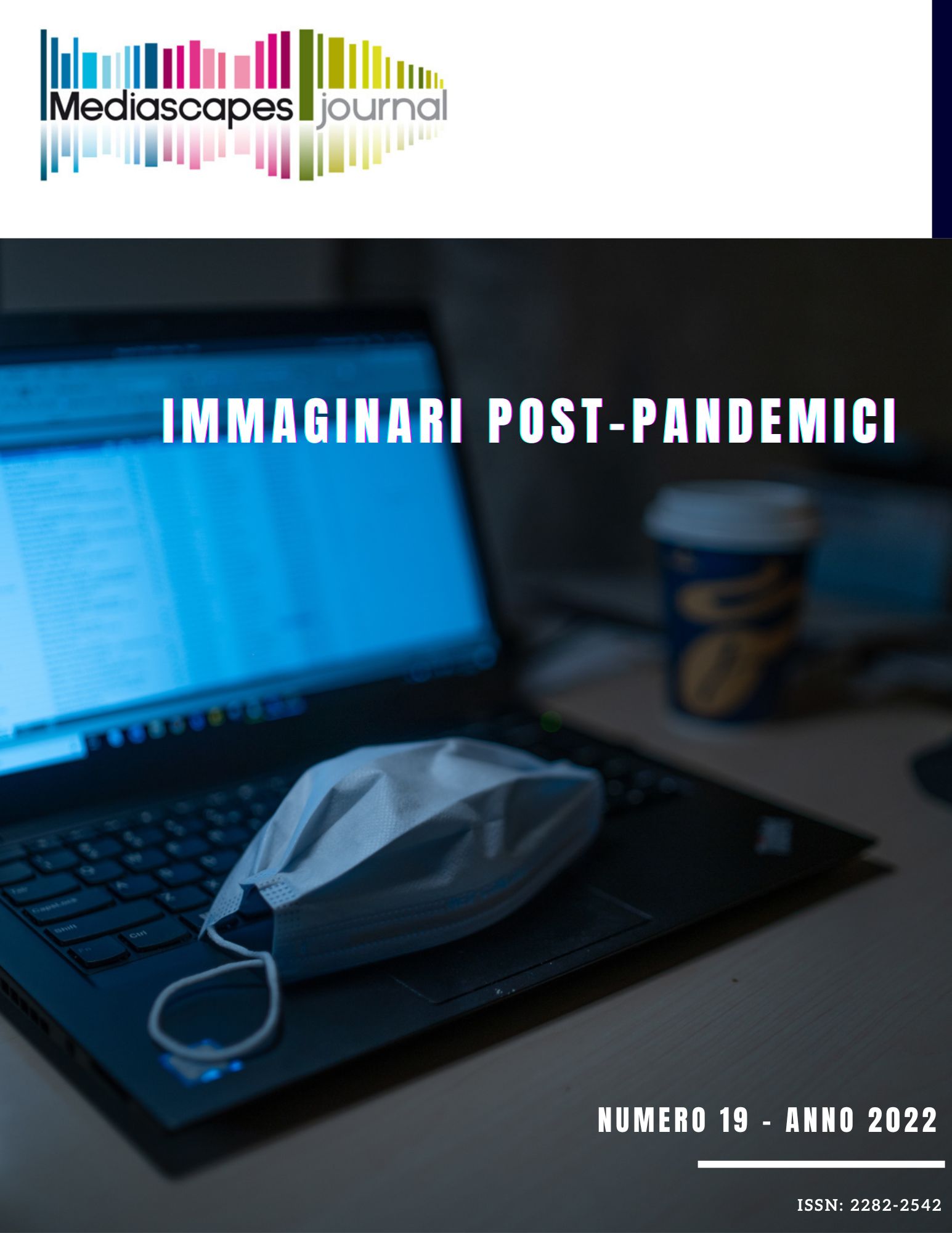The debate on the Zan Bill and the Italian post-public sphere
Keywords:
post-public sphere, polarization, emotions, Zan Bill, social mediaAbstract
During the 2020-2021 period, the public sphere was primarily affected by the debate on Covid-19 and the measures to contrast the pandemic. Among the other social-political topics of public debate, a significant position was occupied by the controversy surrounding the bill against homotransphobia, misogyny and ableism, known as DDL Zan, named after the member of parliament Alessandro Zan, the first signatory of the proposal.
The mediatisation of the political debate has further highlighted the transformation dynamics of the Italian public sphere, which seems to follow global trends: fragmentation phenomena are mixed with a marked increase in polarisation processes, within a dynamic of increasingly evident social platformisation.
Adopting a perspective that is also narratological, the DDL Zan was treated as the protagonist of a qualifying path (the hero) in the “social” ecosystem and, in particular, in Facebook. Using the CrowdTangle platform, the posts published on Facebook at certain “topical” moments were downloaded. A qualitative-quantitative analysis was carried out on the posts, focusing on the modes of debate that involved the political actors. The research design is based on a nested type of mixed-methods approach.
This article focuses on analysing the ways in which debate has become increasingly salient within the public agenda. Emphasis has been placed on three elements that are typical of the post-public sphere and constitute the dimensions of analysis of Facebook posts: a) polarisation and radicalisation of the positions expressed; b) emotionalisation of public debate; c) mechanisms of information and disinformation in interconnected public spaces, starting from the analysis of argumentative strategies.
The article highlights four manipulative mechanisms of the debate around gender issues: neoliberalization, desemantisation of rights, collective removal, and profiling of the ideal citizen. Finally, the article highlights the presence of phenomena of fragmentation of political subjectivities in relation to specific issues and claims, as in the case under analysis.



